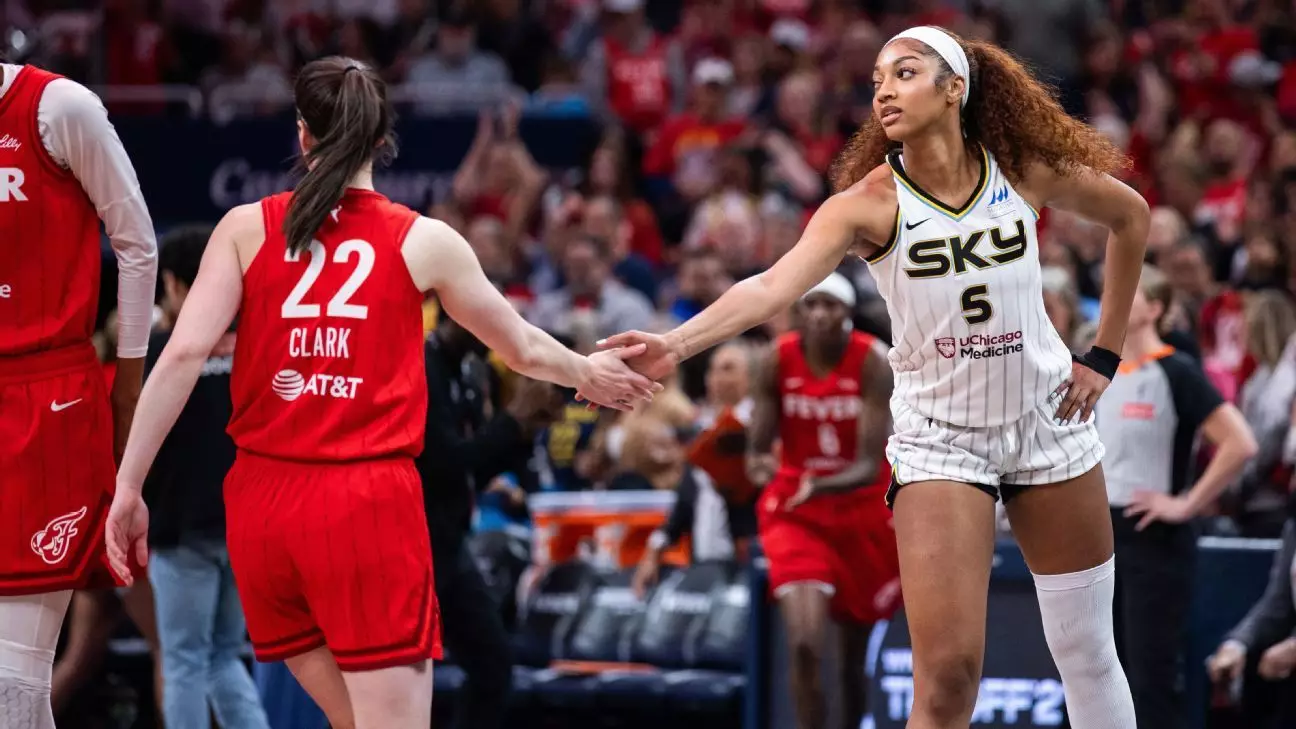The recent allegations of hateful fan comments made against Chicago Sky player Angel Reese during a heated season opener in Indianapolis underscore a troubling undercurrent in sports culture. While Indiana Fever players reported not hearing anything overtly malicious amidst the exhilarating clash that ended with a 93-58 victory, the very fact that these claims surfaced demands our attention. The WNBA has rightfully initiated an investigation, and this is not just a reactionary measure; it is a necessary step in reinforcing the values we purport to hold in athletics and society at large.
In an age where social media amplifies every whisper, it’s crucial to navigate these allegations with both empathy and urgency. Caitlin Clark, a key player for the Fever, encapsulated an essential truth when she stated, “There’s no place for that in our game, there’s no place for that in society.” This conviction not only emphasizes the need for a constructive atmosphere during games but also reflects a greater societal issue. We need to ask ourselves: what kind of environment are we fostering? Are we, as spectators and fans, turning the passion for sports into a breeding ground for vitriol and disrespect?
The Ripple Effect of Disrespect
In sports, tension can escalate quickly, making it all too easy for fans to slip into hazardous territory. The flagrant foul assessed to Clark during the contentious third-quarter incident with Reese marked a point of potential escalation. This incident raises larger questions—how often does the energy of competition spill over into unsportsmanlike conduct from the stands? When a passionate fan decides their voice and anger should chime in beyond the basketball court, it undermines the integrity of the sport.
Aliyah Boston’s quick intervention in this scenario is commendable, highlighting the importance of sportsmanship. Nevertheless, Boston’s astonishment at receiving a technical foul for her role as a peacemaker was distressing. It exemplifies the complexity of navigating intense sporting environments, where preserving decorum becomes paramount, yet often becomes an uphill battle. How can we expect players to thrive and represent their teams honorably when the lines are blurred, not only between competition and aggression but also between respect and disdain?
Uplifting Each Other in a Shared Space
The voices of seasoned players like DeWanna Bonner ring true as they stand united against hate and disrespect. Her insight into the need for a shared commitment to uplifting one another is essential in redefining what we celebrate in sports—a true team spirit encompasses both on-court performance and off-court values. The Indiana Fever and WNBA as a whole should not only aim for an aggressive environment that intimidates opponents; they must also cultivate a space conducive to respect and enjoyment for all.
The challenge lies in teaching fans that passion does not necessitate hostility. As Boston articulated brilliantly, “It’s about respect.” This statement should form the cornerstone of every interaction in sports venues. Rather than viewing opposing players as adversaries to deride, we must embrace them as equals sharing a sacred space of competition and camaraderie.
What is truly needed is a systemic change in how we perceive sportsmanship and respect. It’s not merely about winning or losing; it’s about playing the game with dignity where every individual—both players and fans—leaves the arena inspired, not embittered.
Moving Forward with Intention
As the Fever gear up for their upcoming match against the Atlanta Dream, it offers a crucial moment for reflection and recalibration. This situation must catalyze a larger conversation around conduct, challenging not just the bewildering comments alleged during games but also our very culture of sports fandom. By setting expectations for respectful behavior, we can collectively work towards a new chapter that champions positivity over negativity.
The WNBA’s investigation into these allegations is a step in the right direction. Yet the challenge ahead requires persistent dialogue among players, organizations, and fans alike. This is where liberal values come into play—a commitment to equality and respect for all participants. In the end, our leagues should stand as not just competitive battlegrounds but as communities that uphold human dignity above all else. Only then can we hope to emerge from the shadows of toxicity into the light of a more respectful sporting culture.


Leave a Reply